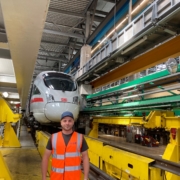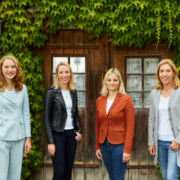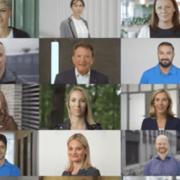From a vision to a company, part 2
What counts, is the team
As a company founder, I faced a challenge that has not changed to this day: recruite employees that acctually form a team. “A doctor doesn’t clean. Especially not cleverly” – that’s what went through my mind when I thought about how my customers probably assessed me. My first experiences with the mop were a double lesson for me on this point. I was all the more interested in experienced staff who had proven themselves in practice. They radiated the sovereignty and competence that convinced clients. That was right then, and it is right now. Service is characterised by uncompromising quality standards.
Another thought was working in me as a young entrepreneur. It had to do with the fact that a craft activity such as building cleaning demands two qualities in the employees that are not given to everyone. One is the intensity of the work, both mentally and physically, which is permanently required. Day in, day out, “delivering” with all one’s strength and conviction, not giving in to exhaustion, something we usually know from competitive athletes. The other is the ability to recognise and understand the human side of colleagues and customers – and to deal with it.
This observation was essential back then in building cleaning, and it is even more so today in facilities management, which we have evolved into. Whether we have a chamois leather and a bucket in our hands or a tablet: even if tools and technology are perceived at first glance, those who have them in their hands make the difference. Because they have the eyes and ears to perceive something, and the mind and mouth to communicate it. As a leader, this has shown me that being a “boss” means one thing above all. That one must and should be able to rely on what people can do who do not work “for” me, but “with” me.
The Sasse company discovered the practical value of the division of labour, which had only been on paper during my studies. The consequence for me was that I had to find people who understood their craft better than I did. This entrepreneurial insight into my own role led me to start looking a second time. After the service I was passionate about, it was now about people who would be passionate about me as an employer.
Looking back on that time, I am reminded a little of the work of a club manager as it is known in British football: “looking for members for the team, finding them and then bringing them together as a unit”. This triad proved worthy of all my efforts as a young entrepreneur. Our first team soon started playing in the first division. The next step was to develop lasting, i.e. sustainable, customer relationships.
This was the beginning of the third search. As a start-up, we not only had to bring strength to the track, but also distinguish ourselves with our own ideas. Yes, even develop innovations. Which ones? More soon.











